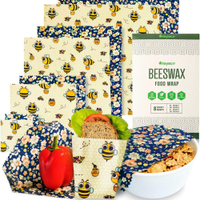I made these simple swaps to make my home more sustainable - and I ended up saving money too
Turns out, being kind to the planet is also easy on your bank balance too
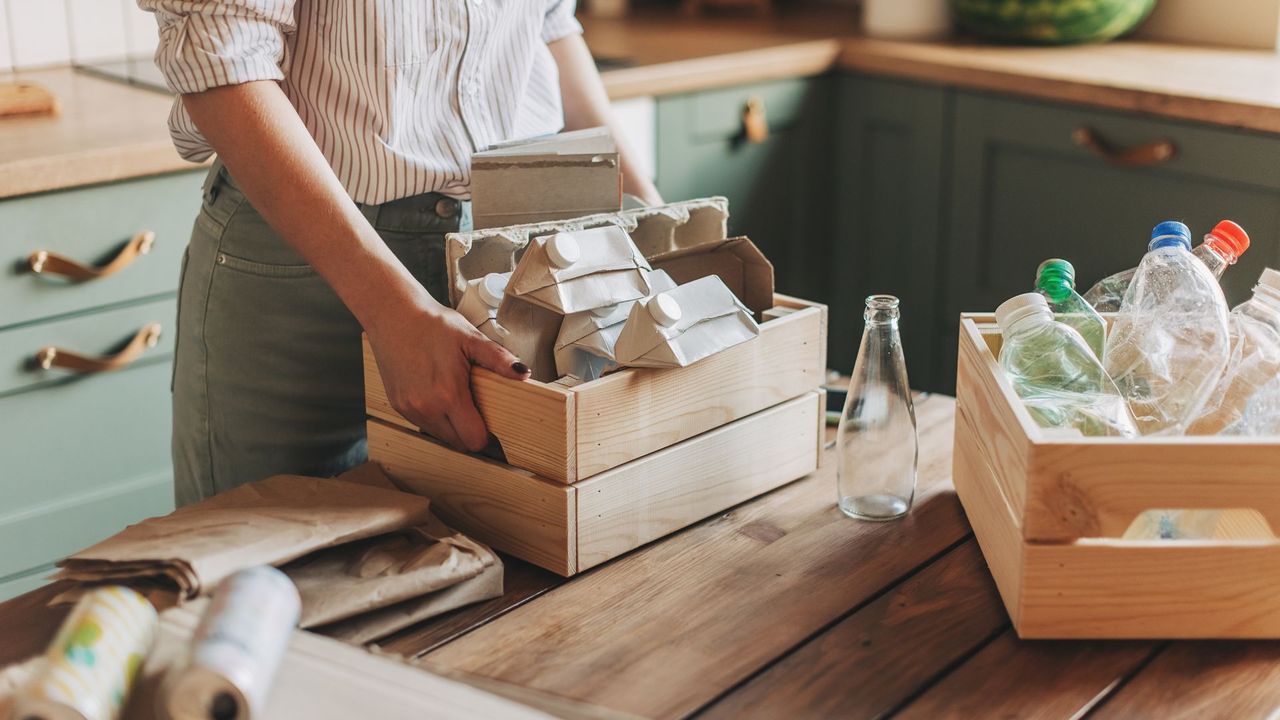

Lots of people think that making their home more eco-friendly is expensive and inconvenient, but it isn't. There are plenty of little swaps you can implement that'll support a healthier and happier household, for you and the planet.
I've been reading up on the most simple and sustainable home hacks to implement. There are plenty of little changes that you can make that will save you money in the long run and there are others that will help to look after your body too. For example, switching from plastic to wooden chopping boards prevents you from ingesting microplastics and wood is a renewable resource, so it's easier on the planet.
I've got mini and macro suggestions that would work in any house. Lots of these swaps for more sustainable living would double up as great gifts for new homeowners or as birthday gifts. And don't worry about ticking off all of these, just a few will make all the difference.
Sustainable swaps to make in your home
Use beeswax wrap instead of clingfilm
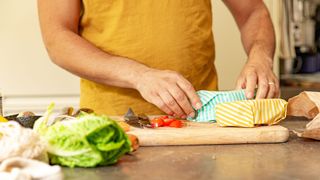
For a long time, I was reluctant to give up the handy cling film that my home hangs off. However, using beeswax wrap (also known as vegan wax) has been a game-changer.
Not only is beeswax wrap reusable, it's also biodegradable. Your single-use clingfilm ends up in a landfill, but after years of use, when you're done with your beeswax, it'll break down in the compost. Other happy extras come with beeswax wrap too: it's breathable (great for stopping food from sweating), non-toxic, and reusable. The only time I wouldn't recommend them is with foods that are very hot or wet as well as with oily foods, since these can stain beeswax wrap.
Beeswax Wraps, set of 8: £14.95 at Amazon
These beeswax wraps are ideal for sealing open containers or wrapping up sandwiches or veggies - plus they can be easily washed with cold water and soap.
Use a wooden chopping board
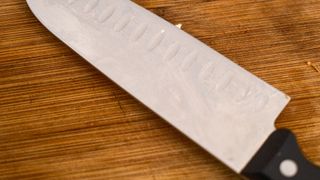
I've always loved wooden chopping boards for their organic texture and colour, but, if you look into the details of them, they have benefits for the environment too. Wood can be strong and durable enough to last you for a whole lifetime and, even though this is true of plastic, it's a renewable resource. There's also evidence that it'll be gentler on your knives and better from a hygiene perspective too.
It's worth noting that this applies to sustainably harvested wood, so always look for an FSC or some sort of certification.
Sign up for the woman&home newsletter
Sign up to our free daily email for the latest royal and entertainment news, interesting opinion, expert advice on styling and beauty trends, and no-nonsense guides to the health and wellness questions you want answered.
Invest in eco-friendly washing up liquid
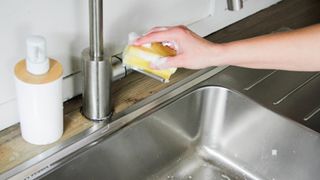
Eco-friendly washing up liquids are made from biodegradable ingredients and sustainable packaging. This means that they'll be able to break down easily, so they won't harm aquatic life or disrupt ecosystems. You'll benefit from it too, because these are often gentler on your skin, so you won't end up with dry, cracked hands, but your dishes will still be sparkling clean. If you're stuck for brand recommendations, take a look at Method or Ecover.
Use recyled or eco-friendly loo and kitchen roll

Lots of supermarkets will sell branded as well as their own brand versions of recycled loo roll and kitchen roll. Opting for these can help to conserve natural resources, which will in turn help to reduce deforestation. You'll also be contributing to less waste. There's really no losing.
I've been using Who Gives A Crap for years and their bamboo collection is super soft and it feels luxurious. The packaging is a real treat too, because it's colourful and often pretty funny too.
Switch to a coconut sponge or scourer
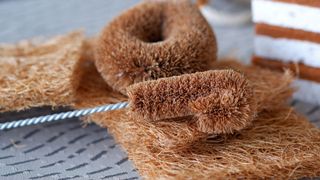
We all have a typical idea of what a kitchen sponge and scourer look like, but not many of us consider what happens to them after we've finished using them. If you switch out your traditional one-for-one made from coconut coir fibres, you'll get the same cleaning results. The plus side is that your coconut scourer will be biodegraded once you've finished with it, so you're not adding any plastic waste to the environment. I've also found that they're gentler on my dishes. They're still great cleaners, but they just don't scratch as much.
Do bigger loads of laundry more often
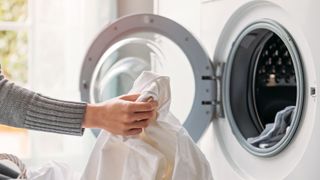
This is one of those changes that you can make which will also save you money. It makes logical sense: you're using less water and less electricity, but this only applies if you're not overfilling your machine. There's a simple trick that you can use, which is called the palm trick. If you can put your hand in the drum and fit it between the clothes and the drum, it's the right size. Make sure you're using an eco-friendly detergent too and you'll get great results.
Make tweaks to how you heat your home

There are, of course, some expensive changes you can make to sustainably heat your home: heat pumps, biomass, and solar heating are all great alternatives. However, there are some smaller ways to keep your house warm for less money that'll still make all the difference. A smart thermostat, for example, will regulate and optimise the times and intensity with which you heat your home. You might also choose to run your radiators at specific times or turn off heating during the day.
Use refillable tubs and bottles
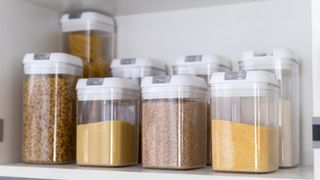
Single-use plastics are still everywhere. So much so, you're probably almost immune to hearing about them. An easy way to take them out of your life is with refillable tubs and bottles. These'll help to prevent how much plastic ends up in landfill (and in the ocean), which also means that you'll end up ingesting less of the chemicals that can leach into our water.
Using refillable containers can also be a great money-saver. You only end up buying the amount of food that you need, so you'll waste less and you'll be getting good value for money out of your containers. I told you these were good investments.
Buy bars instead of liquids (for your soaps and shampoos)
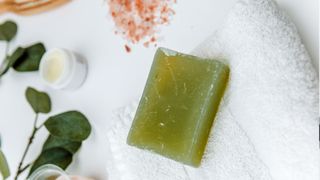
I'm a recent convert to shampoo bars. They feel like some of the more extreme swaps to make, but they're actually brilliant. Most of these waterless bars come in plastic-free, home-compostable packaging, so we're back at our chorus of "reduce the single-use plastic in your home". They're also handy if you're travelling because shampoo bars aren't considered under your liquid allowance (and they're leak-free). You can get face soaps, conditioners, and body soaps as bars too, but shampoo seems to be the most popular version at the moment.
Use LED lightbulbs
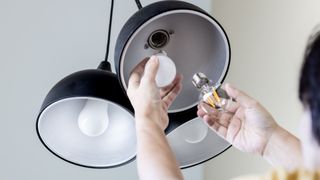
Simply put, LED bulbs use less energy, they last longer, and they're recyclable. That holy trinity makes these more environmentally friendly than traditional lightbulbs. I've also quite liked the look of LEDs and the retro style lamps are really on-trend too.
The Department of Energy says that they use up to 90% less energy than incandescent bulbs (hello lower energy bills) and that they can last up to 25 times longer. We're back to planet-saving which also helps out your bank balance too.
Use wool dryer balls
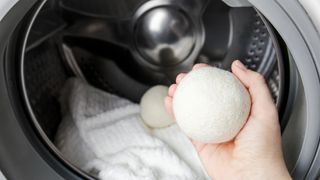
This is one of those little, inexpensive additions to bring into your home. Wool dryer balls are a great way to speed up your tumble dryer cycle and save money. They help to absorb excess moisture from your clothes, which means that you can set your tumble dryer for a shorter time. Of course, this is good for the planet (and your bills), but it's also beneficial for your clothes. The wool balls reduce static, naturally, soften plastic, and they're completely reusable and chemical-free. If you've moved to dryer sheets, these are the eco-friendly upgrades you need.
Air dry your laundry if you can
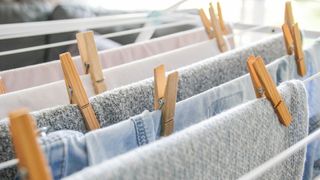
There are lots of ways to dry your laundry indoors that don't require a tumble dryer. That's really the aim here. Tumble dryers consume a lot of energy, so they're expensive for you and they take their toll on the planet too. Of course, in an ideal world, our clothes would air dry on a line, in the fresh countryside breeze. However, in the winter, it's likely that you'll need to assess your options. I've used dehumidifiers, heated clothes airers, and other energy-efficient appliances when I've needed an extra hand.
Make sure you're composting food waste
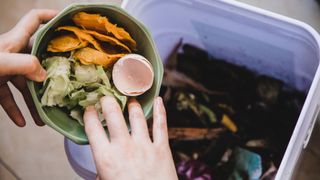
Composting feels like an old-school way of bringing sustainability home and yet I'm often shocked by just how few people dispose of their food waste this way. If you can compost, it's much better for the planet. Not only do you reduce the amount of waste going to landfill (where they'll release greenhouse gasses), you'll be able to naturally fertilize the soil, improving the water and nutrients that your plants grow in. Countryside homes can create their own compost heap, but if you live in an urban area, you'll have compost bins available to you.
Pick up reusable cotton pads
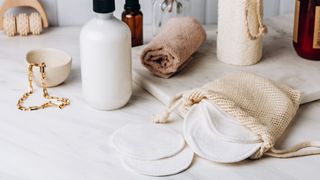
Cotton always seems like a safe alternative to plastic, but cotton pads are single-use. Here's where things get a little tricky because cotton can actually be quite demanding on water systems. If your cotton pads are reusable, you're in the clear, because they're zero-waste and the cotton is getting a sustainable amount of use. If they're not, it's worth making the swap. You could even opt for bamboo cotton pads, which I've heard do wonders for your skin.
Make sure your appliances have energy star ratings
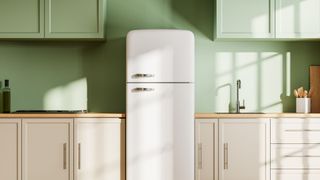
Every appliance will have an Energy Star rating, which is an indication of how energy-efficient a product is. The higher star ratings will require less energy for the same output, which means that it's one of those good-for-the-planet-good-for-your-wallet swaps. It just makes sense. I'd say that this matters the most for your big appliances, such as refrigerators, washing machines, and tumble dryers, but it's worth checking all your appliances. Just a few swaps can make all the difference.
Use refillable containers (and shops)
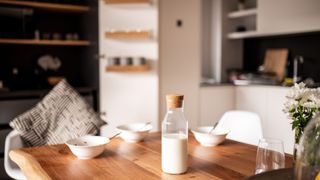
There are increasing numbers of shops that offer refill stations. These will help you to mindfully consume your home produce and you'll be avoiding plastic, single-use packaging that you wouldn't otherwise be able to dispose of.
There are some shops dedicated to refills, rather than the big supermarkets which offer a more moderate, inconsistent refill system. To find what you're after, you might need to do a bit of searching, but it's very rewarding.
Re-use your shopping bags (and even get totes)
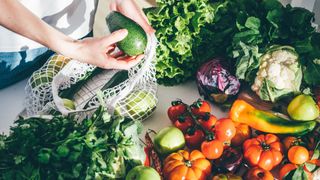
I love a tote bag, a string, bag, or any kind of re-usable bag. I remember the days when plastic bags were free, but that was a time when we didn't think about - you've got the chorus again - single-use plastics. Bringing your own bags to the supermarket will help to reduce the consumption of plastic as well as how many of these bags will end up in landfill (where they'll stay for thousands of years). Also, now that we're charged for the bags, you're saving money by bringing your own.
Freeze food that might go to waste
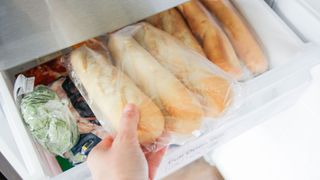
From a sustainability perspective, freezing your food reduces the amount of resources needed to grow, transport, and cook food. From a practical perspective, it'll save you time and money too.
I actively freeze extra portions of food that I know will go to waste and I always thank myself when I'm squeezed for time in the evening. You can meal prep, or take stock of what's in your fridge once a week. Either way, keeping on top of what you've got can make a big difference.
Use your electric blanket for warmth
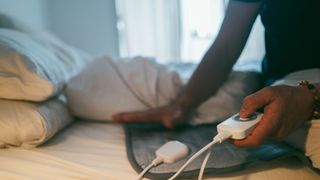
Electric blankets and heated throws can be a great way to stay warm without having to turn the heating on. It makes sense, doesn't it? Rather than heat the whole lounge when you're on the sofa, you can snuggle up in a lot more concentrated heat, which is created with more efficiency. Lots of electric blankets are designed to be fluffy and cosy, so they're naturally warm anyway, but when you run the extra warmth too, things get toasty. You'll be saving money on heating too, which is music to my ears.
Open a window to cool down

This is a sustainable swap to make if you've been using a fan or the AC to cool your home down. Of course, there are exceptions (when it's hotter outside), but generally, getting a breeze through your home can be helpful. While there are plenty of different ways to keep your home cool, there isn't anything quite like a breeze of fresh air flowing through your home. It'll be good for your air quality too.
Add a recycling bin to your bathroom

Thinking back to when I didn't have two bins in the bathroom is baffling. When you have one bin, all your plastics end up mixed in with other rubbish. Then, when bin day rolls around, your patience will be thin and you'll most likely tip it all into the main bin. If, on the other hand, you've pre-sorted out your plastics your cardboard and your papers, you'll be able to reduce the amount of waste that ends up in landfill. Bathroom bins aren't big or expensive, so this is a very neat trick to employ.
Don't leave your appliances on standby
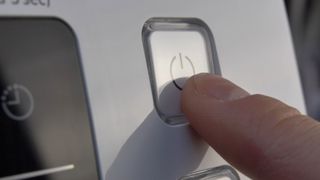
This is one of those simple switches that lots of us overlook. Leaving your appliances on standby means that they're still using electricity. That means that they're creating a carbon footprint and an, albeit small, drain on your energy bills. Per Quote Zone, leaving your appliances on standby can cost you up to £150 in a year. So, get that TV off! And turn the coffee machine and the toaster off while you're at it.
Think about your bed linen composition

Polyester bed linen, as you might suspect, is artificially made. This means that it won't break down and biodegrade in the same way that cotton, linens, and bamboo will. Whilst that's bad for the environment (it's the plastic story all over again), it's also not great for your skin. The natural fibres, whilst more expensive, will be more breathable and gentle. If you suffer from night sweats or allergies, I'd recommend making the swap. It's worth investing in some good bed sheets as you'll also get a better night's kip.
Try to grow some of your own food
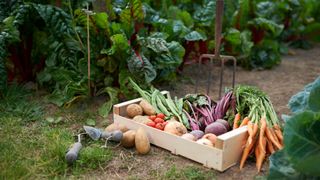
I tell lots of people to try growing their own food, not for a sustainability purpose (although that helps), but for a mental health and wellbeing one. There is nothing more satisfying than nurturing your potted tomato plant, lettuce, or herb collection on the windowsill. It's a time investment, but you do not have to fly, drive, and package up the food. Plus, you'll be able to know just what's been sprayed or fed to your plants and you'll even see the little ecosystem that grows around your home garden.
Take travel cups with you

Lots of coffee shops offer incentives for reusable cups, be it money off or special rewards. This is because over 2.5 billion disposable coffee cups are thrown away each year in the UK, according to a University of Kent study. These could end up in the ocean too, so you'll find microplastics in the food and water sources. If you can take your own to the shops, you're doing the world (and your wallet) a big favour. Plus, there are some seriously stylish options out there already.
Prep ahead and use lunch boxes
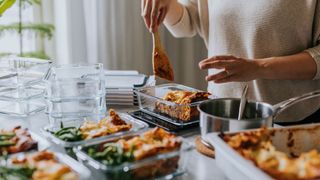
Here's another tip that saves you money too. If you can use lunchboxes to meal prep your food, you won't end up spending a small fortune on a meal deal, you can give yourself some more nutritious food, and you won't end up with a lap full of single-use plastics. There are some very nice reusable lunch boxes out there. I try to look for metal or glass ones, again to limit the amount of plastic being produced, but if you use yours lots, a little plastic is okay.
Make your mattress natural

Mattresses are some of the worst culprits when it comes to sustainability. According to Woolroom, seven million mattresses are discarded in the UK each year. Not only do these take up a lot of space in landfills, but they can contribute to harmful gas emissions and, in their full state, they'll be difficult to break down naturally.
There are companies, such as Woolroom and Button & Sprung, who will take away old mattresses to dispose of properly and in an eco-conscious way and then they'll give you a mattress that's crafted from natural fibres. It's another scenario which benefits you and the environment; you won't have nasty chemicals in your bedroom. Many of the best cooling mattresses are natural ones, too.
Test out making your own cleaning products
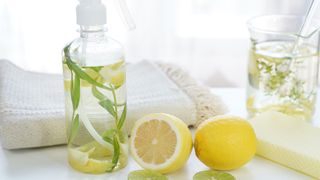
We're always touting the different things that you can clean with vinegar and how to use baking soda for some of your toughest spills, stains, and burns at home. It's cost-effective and another way in which you can avoid using some of the nasty chemicals that use up lots of water and harmful substances to make. I've been working with lemon juice on my limescale and it's been a real treat. I'm also a lot less worried about drinking from the kettle when all it's had is lemon inside it.
Buy cleaning concentrates to save on packaging
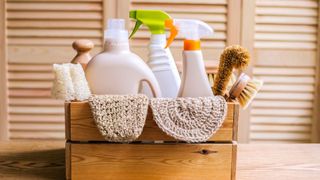
Cleaning concentrates require less energy to transport and they'll also demand less packaging, so you'll reduce your carbon footprint whilst saving on space in your kitchen cupboards too. You'll end up with a tiny bottle in the cupboard and you won't need to replace it all year. There's something extremely pleasing about that and I can't put my finger on why. I'd say sustainability accounts for a lot of it.
Make your cooking utensils all wooden
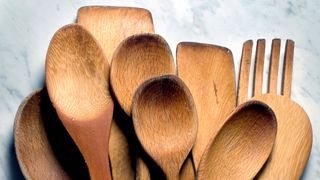
Wood is often the option for non-stick pans because it's gentler on the surfaces. However, they're also naturally strong and kinder to the planet too.
The reason I always recommend using wood in your kitchen is because it's a renewable resource that'll break down properly once you're done with using yours. Although, with how durable wood is, your wooden spoons and spatulas will likely last a long time. Don't forget, they are chemical-free too, unlike lots of plastic alternatives.
Use cloth napkins
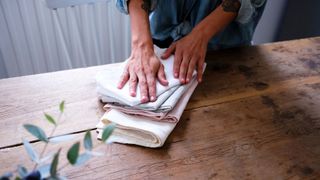
I always think of cloth napkins as classy, but making the simple swap from paper to cotton can be a great sustainable solution too. They're reusable, so you're not adding extra waste to landfill and you'll save money in the long term.
Cloth napkins also tend to be more robust and useful for spills and messy meals. You can opt for plain white cotton, or there are napkins made from bamboo these days too. Don't forget about the pretty decorations that you can do.
Only boil the water that you need

I'm guilty of always filling the kettle to the brim, but this puts unnecessary extra stress on your utilities and bills. You'll need more energy to boil a kettle for five cups of water than you would for one. Plus, lots of tea and coffee snobs say to only boil water once, so you'll be saving water too. Apparently, freshly boiled water tastes different to reboiled water thanks to the oxygen content. If it's better for taste and the planet, it's a no-brainer for me.
Buy organic food where you can
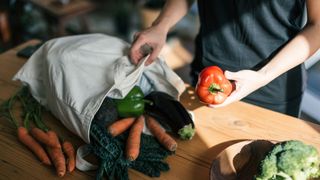
There's no escaping that organic food can be more expensive, but if you dig into why, it's worth the extra cost. Organic produce is grown without synthetic pesticides and fertilisers, which is immediately better for the health of soil, animal ecosystems, and for your body. Having healthier soil, uncontaminated water, and a better biodiversity can help deliver you more nutritious food too. I've also never liked the idea of how far the chemicals might leach into your food, especially soft fruits and vegetables. Stick with organic and you've not got any of these worries.

Laura is woman&home's eCommerce editor, in charge of testing, reviewing and creating buying guides for the Homes section, so you'll usually see her testing everything from the best dehumidifiers to sizing up the latest Le Cruset pot. Previously, she was eCommerce editor at Homes & Gardens magazine, where she specialised in covering coffee and product content, looking for pieces tailored for timelessness. The secret to her heart is both simplicity and quality. She is also a qualified Master Perfumer and holds an English degree from Oxford University. Her first editorial job was as Fashion writer for The White Company.
-
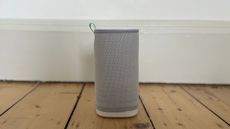 This water-bottle-sized air purifier is the best I've tested - the Vitesy Eteria is remarkable
This water-bottle-sized air purifier is the best I've tested - the Vitesy Eteria is remarkableThe Vitesy Eteria Air Purifier is no bigger than your water bottle and yet it goes into more depth and detail than models ten times the size and price. I'm sold.
By Laura Honey Published
-
 M&S's mini basket bag that looks so much like Loewe’s raffia crossbody is £400 cheaper
M&S's mini basket bag that looks so much like Loewe’s raffia crossbody is £400 cheaperNothing says summer like a straw basket bag - and this M&S designer lookalike is stunning
By Charlie Elizabeth Culverhouse Published
